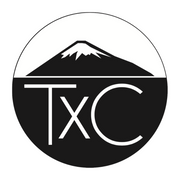In the 19th Century, the Transcontinental Railroad was built to connect the East and West of the United States. The railroad was important to make the country more cohesive- it would be the first efficient form of transportation across the US. However, the project had many obstacles and would be an engineering feat to complete.
Two companies were responsible for taking on this challenge: The Union Pacific and the Central Pacific. The Union Pacific started building tracks from Omaha, Nebraska, while the Central Pacific started in California. Their strategy was to build towards each other until the tracks met in middle.
The Central Pacific needed 4,000 workers to complete their portion of the railroad but as they hired Irish immigrant workers, only managed to retain about 1,000 of them. They were desperate to find a solution.
In the 1850s, thousands of Chinese had immigrated to California in the rush for gold. However, many did not strike it rich as they hoped and were forced to find jobs. The Central Pacific reluctantly hired them as workers, despite their low expectations of these foreign hands. The Chinese workers proved themselves as reliable and very effective workers, hence thousands of them were hired until they made up 80% of the workforce.
Why were the Chinese so effective? They took care of themselves.
The Chinese had meticulous wellness and hygiene customs that made them resilient to diseases and reliable for work. Where the Irish immigrants were eating meat, beans, and potatoes, the Chinese ate rice, fish, and vegetables.
Most importantly, the Chinese boiled all their water for tea to stay hydrated. Heating the water made it safe to drink and they avoided many water-borne illnesses like dysentery, unlike the Irish workers who drank unsterilized water. Tea truly saved the Chinese and the construction of the Transcontinental Railroad.
Construction of the Railroad started in 1865, covered 1,776 miles, and took 4 years to complete. The Railroad was made possible by 12,000 Chinese workers and the tea they drank every day.
